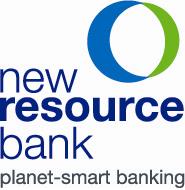Natural products entrepreneurship is often a game of adapting to (and insulating yourself from) unwelcome surprises, and running out of cash is one all-too-common and all-too-disastrous business surprise. Conventional loans, factoring and other financial options are often too slow or too exorbitant to work in these tight situations. Asset-based lending may be the best option to consider, says New Resource Bank's Gary Groff. Read on for his advice on asset-based lending and see if your business qualifies.

Your product is flying off the shelves. Whole Foods wants more of it, and other retailers are competing for your inventory. Great, right? But you’re also buying the raw components on a fair-trade basis, paying farmers before they even produce a crop. You’re sinking capital into making your product up to six to eight months before you’ll get paid for it. How do you get the funds right now to fuel revenue growth on the horizon?
 These cash-flow dilemmas are common among natural product makers. You may have to prepay for some ingredients; there may be a long delay between when you buy raw materials and when you sell the final product; and you may need to make major equipment purchases quickly to increase production volume.
These cash-flow dilemmas are common among natural product makers. You may have to prepay for some ingredients; there may be a long delay between when you buy raw materials and when you sell the final product; and you may need to make major equipment purchases quickly to increase production volume.
Unfortunately, the potential solutions are often unappetizing. A conventional loan based solely on historical financials and accounts receivable typically won’t provide enough cash—if your company qualifies at all. Raising capital from investors requires giving up equity in your business. And factoring or PO financing from nontraditional lenders is expensive—the equivalent of high-interest credit card debt.
Asset-based loans: the natural fit
Many companies in this situation don’t realize that they may qualify for an asset-based bank loan—a revolving line of credit or term financing based on inventory and other assets plus receivables. This type of loan offers several advantages:
It unlocks the value tied up in your inventory and receivables, providing immediate cash flow from slower-turning assets and maximizing your borrowing capacity.
You get competitive interest rates.
You retain your current ownership position.
Asset-based loans can scale as the company scales, meeting current and future needs within the same loan structure.
Asset-based loans are an excellent fit for manufacturers and distributors, which, unlike software and service businesses, may have ample assets in inventory and high-value receivables. High-growth companies in particular are good candidates for asset-based financing, since the faster your company grows, the more cash gets tied up in inventory and receivables.
Does your business qualify?
Your company doesn’t have to be profitable to qualify for an asset-based loan, but you should have an established business with positive cash flow over the year, have marketable assets and be able to show a clear path to profitability. A bank will want to see most or all of these attributes:
A diverse and creditworthy accounts receivable base
Positive growth trends
Re-marketable inventory (meaning, stuff the bank can sell if you default), including raw ingredients and, especially, significant finished goods inventory
High demand for your product and strong receivables
A final note: If you decide to seek an asset-based loan, be aware that this kind of financing requires expertise on the part of the lender that not all banks have. Look for a bank that promotes asset-based loans and has a deep understanding of the natural products sector so it can value your inventory accurately.
About the Author(s)
You May Also Like




